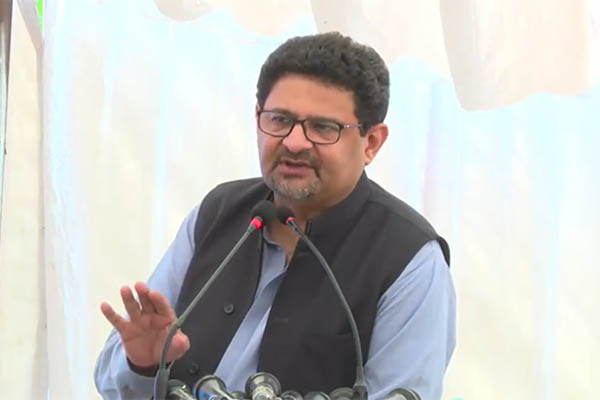
File photo of Finance Minister Miftah Ismail
Finance Minister Miftah Ismail on Friday said that he agreed with the International Monetary Fund (IMF)’s recommendations to curtail blanket fuel subsidies, as he reiterated his allegations of ousted prime minister Imran Khan leaving “traps” for new government through unsustainable subsidies.
The newly appointed minister, who took oath of office earlier this week, is currently in Washington to meet with the global lender and revive a suspended loan facility that is widely perceived as necessary to boost Pakistan’s flailing foreign exchange reserves and to boost investor confidence in the nation. The IMF, in 2019, had approved a $6 billion loan for Pakistan of which approximately $3 billion has been disbursed so far. The remaining amount is pending the revival of an Extended Fund Facility that was suspended earlier this year due to the change in government and, at least partially, the previous PTI-led government deviating from its commitments by implementing blanket subsidies.
Addressing a virtual session of the Atlantic Council, Ismail said he had “good discussions” with the IMF so far. “They have talked about removing the subsidy on fuel. I agree with them,” he said. “We can’t afford to give the subsidies that we’re giving. So we need to curtail these,” he said. “We have such an elite-benefitting country that almost every subsidy that you can speak of actually goes to the richest people,” he added.
The finance minister reiterated that ousted prime minister Imran Khan had set a “trap” for his successors through heavy subsidies on fuel. However, he said, some targeted subsidies should remain for Pakistan’s most impoverished. He said most of the reforms being advocated by the IMF were in the best interests of Pakistan, adding that the country needed to move toward a new economic model by removing obstacles to investment and promoting exports to the world.
Prior to traveling to Washington, Ismail had already said that he did not agree with the fuel subsidy that had been implemented last month, adding that continuing it for the months of May and June would cost Rs. 96 billion, a burden the government could not afford. Last week, Prime Minister Shehbaz Sharif rejected a proposal to hike the prices of petroleum products in the country, saying the new government could not impose such a heavy burden on the public at this juncture.
Ousted prime minister announced a fuel subsidy on petrol and diesel prices on Feb. 28, adding that prices would not be increased until the budget for the next fiscal year had been announced.
